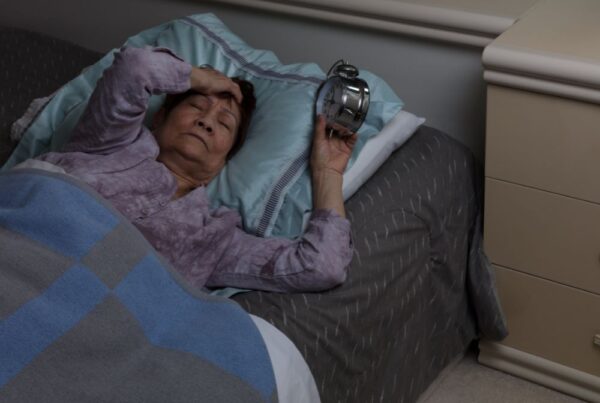Mental Exercises for Seniors: Activities that Boost Cognitive Function
Key Takeaways
- Mental exercises help seniors maintain memory, improve problem-solving skills, and reduce the risk of cognitive decline.
- Activities like puzzles, reading, learning new skills, and social engagement strengthen neural connections.
- Brain-boosting hobbies such as playing chess, journaling, and music training enhance cognitive flexibility.
- Physical activities like yoga, tai chi, and dancing promote both mental and physical well-being.
- Advanced Care provides tailored cognitive support to help seniors stay engaged and mentally active.
How Can Seniors Boost Cognitive Function?
Seniors can enhance cognitive function by engaging in brain-stimulating activities such as puzzles, reading, learning new skills, and social interaction. Regular mental exercises help preserve memory, improve problem-solving abilities, and support overall brain health as they age.
Strengthening the Mind for Healthy Aging
Keeping the brain active is essential for maintaining cognitive health in seniors. Engaging in mentally stimulating activities promotes brain plasticity and supports long-term cognitive function. Learn how Advanced Care helps seniors stay mentally sharp with personalized cognitive wellness programs.
Maintaining cognitive health is just as important as physical well-being, especially as we age. Keeping the brain active through mental exercises can help seniors improve memory, enhance problem-solving skills, and slow cognitive decline. Engaging in stimulating activities is essential for aging well, as it promotes brain plasticity, builds cognitive reserve, and supports overall mental wellness.
At Advanced Care, we understand the vital role that mental stimulation plays in the lives of seniors. In this comprehensive guide, we’ll explore the importance of cognitive engagement, share the best mental exercises for seniors, and provide practical tips for incorporating brain-boosting activities into daily life. We’ll also discuss how our dedicated caregivers at Advanced Care support seniors in maintaining lifelong cognitive health.
The Importance of Mental Stimulation for Seniors
As we age, our brains undergo natural changes that can affect cognitive function. However, engaging in regular mental stimulation can help mitigate these changes and promote brain health. Here are some key reasons why mental exercises are crucial for seniors:
1. Preserves Memory and Cognitive Skills
Over time, neural connections in the brain can weaken, leading to memory lapses and slower processing speeds. Engaging in mentally challenging activities helps strengthen these connections, keeping the brain sharp and responsive. By consistently exercising the brain, seniors can maintain and even improve their memory, attention, and cognitive skills.
2. Reduces the Risk of Dementia
Numerous studies suggest that seniors who engage in cognitively stimulating activities have a lower risk of developing dementia and Alzheimer’s disease. Mental exercises help build cognitive reserve, which is the brain’s ability to cope with damage or disease. By keeping the brain active and forming new neural pathways, seniors can increase their cognitive resilience and potentially delay the onset or progression of age-related memory loss.
3. Enhances Problem-Solving and Critical Thinking
Mental exercises challenge the brain to think in new and creative ways, improving analytical skills and adaptability. When seniors engage in activities that require problem-solving, strategic planning, or critical thinking, they strengthen their ability to process information, make decisions, and navigate complex situations. This enhanced cognitive flexibility can be particularly beneficial in maintaining independence and quality of life as we age.
4. Improves Mood and Emotional Well-Being
Engaging in mentally stimulating activities can have a profound impact on emotional well-being. The sense of accomplishment and mastery that comes from learning new skills or solving challenges can boost self-esteem and confidence. Additionally, many cognitive exercises involve social interaction, which can help combat feelings of loneliness and depression. By staying mentally engaged, seniors can maintain a positive outlook and enjoy a greater sense of purpose and fulfillment.
Best Mental Exercises for Seniors
There are countless ways for seniors to keep their minds active and engaged. Here are some of the most effective and enjoyable mental exercises:
1. Brain-Training Games and Puzzles
Games and puzzles that challenge memory, logic, and reasoning are excellent tools for keeping the brain agile. Some popular brain-training activities include:
- Crossword Puzzles: Solving crosswords helps improve vocabulary, word retrieval, and problem-solving skills. The mental effort required to complete a puzzle can also enhance focus and concentration.
- Sudoku: This number-based logic puzzle is a great way to strengthen pattern recognition and logical thinking. Sudoku challenges the brain to think strategically and can be adapted to various skill levels.
- Jigsaw Puzzles: Assembling jigsaw puzzles engages multiple cognitive skills, including spatial awareness, visual perception, and concentration. The process of fitting pieces together can also be a calming and meditative activity.
- Chess and Checkers: These classic board games are known for their ability to boost strategic thinking and planning skills. Playing chess or checkers requires anticipating moves, analyzing patterns, and adapting to changing situations.
2. Reading and Writing
Engaging with language through reading and writing is a powerful way to stimulate the brain. Seniors can benefit from:
- Daily Reading: Whether it’s fiction, non-fiction, or poetry, reading exposes the brain to new ideas, expands knowledge, and improves focus. Encouraging seniors to read regularly can help maintain cognitive function and provide a source of enjoyment and relaxation.
- Journaling: Writing about daily experiences, memories, or personal reflections can improve recall and self-expression. The act of putting thoughts into words engages multiple areas of the brain and can be a therapeutic outlet for emotions.
- Creative Writing: Crafting stories, poems, or essays taps into the brain’s imaginative and linguistic abilities. Creative writing challenges the brain to think in novel ways and can be a fulfilling form of self-expression for seniors.
3. Learning a New Skill or Hobby
Taking up a new hobby or acquiring a new skill is an excellent way to challenge the brain and build new neural pathways. Some engaging options for seniors include:
- Learning a New Language: Studying a foreign language is a powerful cognitive workout. It improves memory, enhances multitasking abilities, and increases cognitive flexibility. Learning a new language can also expose seniors to different cultures and ways of thinking.
- Playing a Musical Instrument: Music engages multiple areas of the brain simultaneously, strengthening hand-eye coordination, auditory processing, and memory. Learning to play an instrument can be a rewarding and mentally stimulating pursuit for seniors.
- Crafting: Activities like knitting, crocheting, or woodworking require focus, manual dexterity, and pattern recognition. Engaging in crafts can provide a sense of accomplishment while promoting cognitive function.
4. Social Engagement Activities
Social interaction is crucial for mental and emotional well-being. Participating in group activities not only provides cognitive stimulation but also fosters a sense of connection and belonging. Consider:
- Joining a Book Club: Discussing books with others encourages critical thinking, enhances memory retention, and exposes seniors to diverse perspectives. Book clubs provide an opportunity for intellectual discourse and social bonding.
- Attending Discussion Groups: Engaging in structured conversations or debates on various topics can sharpen reasoning skills and promote mental flexibility. Discussion groups allow seniors to express their opinions, listen to others, and expand their knowledge.
- Playing Social Games: Card games like Bridge or board games like Scrabble and Rummikub combine strategic thinking with social interaction. These games challenge the brain while providing an enjoyable way to connect with others.
5. Physical Activities That Stimulate the Mind
Movement-based activities that require focus and coordination can provide a mental workout alongside physical benefits. Some brain-boosting physical exercises for seniors include:
- Tai Chi and Yoga: These gentle, low-impact practices improve balance, coordination, and mindfulness. The mental focus required to execute precise movements can enhance cognitive function and reduce stress.
- Dancing: Learning and remembering dance steps engages memory, spatial awareness, and rhythm. Dancing also provides a social outlet and can boost mood and self-confidence.
- Gardening: Tending to plants involves problem-solving, planning, and attention to detail. Gardening can be a mentally engaging and relaxing activity that connects seniors with nature.
6. Technology-Based Brain Exercises
In today’s digital age, seniors have access to a wide range of technology-based resources for mental stimulation. Some options to consider:
- Brain-Training Apps: Applications like Lumosity, Elevate, and Peak offer personalized cognitive training programs designed to challenge memory, attention, and problem-solving skills. These apps adapt to individual skill levels and provide progress tracking.
- Online Learning Courses: Platforms such as Coursera, Udemy, and edX offer a vast selection of online courses on various subjects. Seniors can explore new topics, acquire knowledge, and engage in continuous learning from the comfort of their own homes.
- Virtual Reality Experiences: Immersive virtual reality technologies can transport seniors to new environments, stimulating the senses and providing novel cognitive challenges. Virtual travel, museum tours, and interactive storytelling can be mentally engaging and emotionally enriching.
Tips for Creating a Brain-Healthy Lifestyle
Incorporating mental exercises into daily life is key to promoting cognitive health. Here are some tips for creating a brain-healthy lifestyle:
1. Make Mental Stimulation a Daily Habit
Consistency is crucial when it comes to mental exercises. Encourage seniors to engage in at least one brain-stimulating activity every day, whether it’s solving puzzles, reading, or learning something new. Making mental stimulation a regular part of the daily routine helps establish a lifelong commitment to cognitive health.
2. Embrace Variety and Challenge
Varying mental activities prevents boredom and keeps the brain engaged. Combining different types of cognitive challenges, such as word puzzles, physical movement, and social interaction, ensures a well-rounded approach to brain health. Encourage seniors to step outside their comfort zones and try activities that push their mental boundaries.
3. Fuel the Brain with a Healthy Diet
Nutrition plays a vital role in cognitive function. A brain-healthy diet rich in omega-3 fatty acids, antioxidants, and essential vitamins and minerals can support mental acuity. Encourage seniors to incorporate foods like fatty fish, nuts, berries, leafy greens, and whole grains into their meals. Staying hydrated by drinking plenty of water is also important for optimal brain function.
4. Prioritize Quality Sleep
Sleep is essential for memory consolidation, brain repair, and overall cognitive health. Encourage seniors to establish a consistent sleep schedule and create a relaxing bedtime routine. Aiming for 7-9 hours of quality sleep each night can enhance the effectiveness of mental exercises and promote better cognitive function throughout the day.
5. Cultivate a Growth Mindset
Lifelong learning and curiosity are key ingredients for a thriving mind. Encourage seniors to approach new challenges with a growth mindset, embracing the idea that abilities can be developed through dedication and effort. Celebrate progress, emphasize the joy of learning, and create an environment that supports intellectual exploration.
How Advanced Care Supports Cognitive Health for Seniors
At Advanced Care, we recognize the importance of mental stimulation in promoting overall well-being for seniors. Our dedicated caregivers are trained to incorporate cognitive exercises and engaging activities into daily care routines. We tailor our approach to each individual’s interests, abilities, and goals, ensuring that mental stimulation is both enjoyable and meaningful.
Our caregivers can assist with a wide range of brain-boosting activities, such as:
- Reading aloud and facilitating book discussions
- Organizing puzzle and game sessions
- Encouraging participation in hobbies and creative pursuits
- Providing companionship and fostering social interaction
- Assisting with technology-based cognitive training
We understand that mental health is closely linked to physical health and emotional well-being. That’s why our holistic approach to care encompasses all aspects of senior wellness. From providing nutritious meals to promoting physical activity and social engagement, we strive to create an environment that nurtures the mind, body, and spirit.
Final Thoughts
Engaging in mental exercises is one of the most effective ways for seniors to maintain cognitive function, enhance quality of life, and age with vitality. By incorporating brain-stimulating activities into daily routines, seniors can preserve memory, improve problem-solving skills, and enjoy a greater sense of independence and fulfillment.
At Advanced Care, we are committed to supporting seniors in their journey towards lifelong cognitive health. Our compassionate caregivers are dedicated to providing the tools, resources, and personalized support needed to keep minds active, engaged, and thriving.
If you or a loved one could benefit from our comprehensive approach to senior care, we invite you to reach out to us. Together, we can create a plan that promotes mental, physical, and emotional well-being, empowering seniors to live their best lives. Remember, it’s never too late to start exercising the mind and unlocking the potential for a brighter, healthier future.






